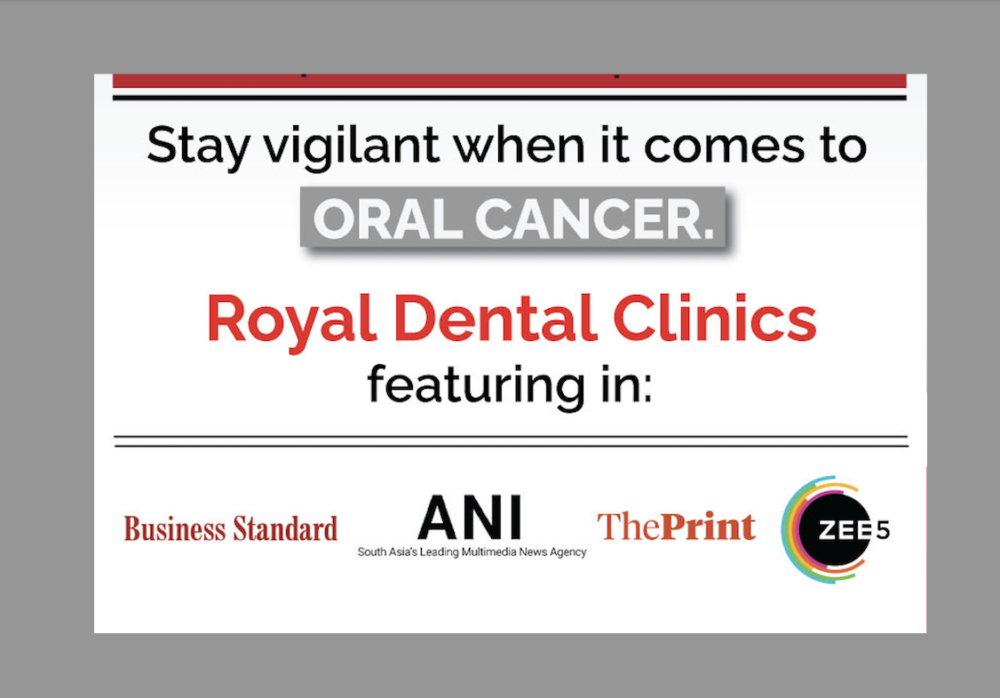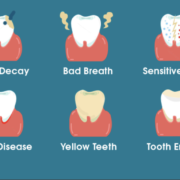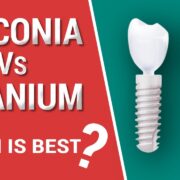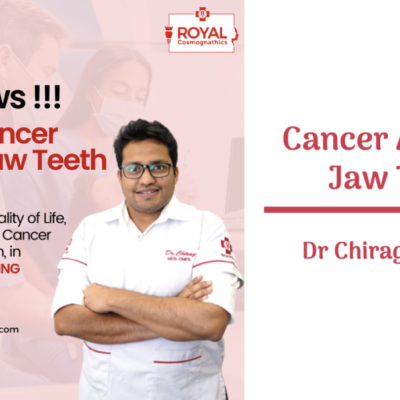Cancer Affected Jaw precarious rise of Oral Cancer in India
India’s cancer statistics are alarming. The country is currently home to the second-highest number of cancer patients in the world, and this number continues to grow each year. In fact, India has one of the highest incidences of oral cancer in the world. There may be many unknown causes of mouth cancers. But there are some factors that can increase your risk of developing it.
Factors that increase risk of Oral cancer
★ Smoking, Alcohol or Tobacco consumption increases your risk of developing oral cancer by more than 90%.
✳ A personal or family history of mouth or throat cancer.
★ A diet low in fruit and vegetables may increase your risk of mouth cancer due to a lack of vitamins and minerals.

✳ Human papillomavirus may infect the skin and the cells lining body cavities. The virus can cause changes in the mouth and throat making them more likely to become cancerous in the future.
★ Research shows a slight increase in the risk of mouth cancer; due to a similar diagnosis in a close relative (parent, sibling, or child).
✳ Changes can happen in the cells in the lining of the mouth where the patches appear red or white.
Symptoms of Cancer-Affected Jaw:
- Prolonged Ulceration
- Pain in your mouth
- Red or White patches in the mouth
- Difficulty swallowing
- Speech problems
- Bad Breath
“Early detection is key to surviving oral cancer”
The first goal of Oral Cancer is to treat and remove the cancer cells. Most of us reach this goal. The second goal of the treatment is to restore your jaw and teeth such that you can eat and look almost the same as before the detection of oral cancer. With the advancement of technology, you can now achieve both goals together. If you have already reached your first goal, you may opt for the second goal now with the advancement in technology. With the latest technology, we can help you achieve your goal.
Oral cancer is a cancerous growth in the mouth, on the tongue, lips or gums. The most common type of oral cancer is squamous cell carcinoma. Oral cancer is the sixth most common type of cancer worldwide and in India, one person dies every 6 minutes from oral cancer.
What is the mouth or oral cancer?
Mouth cancer can start in different parts of the mouth, including the lips, gums or soft sides of the mouth. If your cancer started on your tongue or gums, you might also find it useful to look at how Royal Dental Clinics advises on how to be vigilant and the perils of Oral Cancer.

Perils of ignoring Cancer Affected Jaw
You may not realize it, but there is a chance that you could be ignoring the warning signs of oral cancer. The mouth has one of the highest rates of cancer among all cancers. Here are some ways that you can protect yourself from oral cancer by practising good mouth hygiene and getting regular checkups.
Preparing for treatment and life after rehabilitation
When you’re diagnosed with oral cancer, the feeling is overwhelming. Research says that focusing on lifestyle changes can help to cope better with its side effects and improve your long-term health. Oral cancer is a disease that can affect many different areas of the mouth and throat.
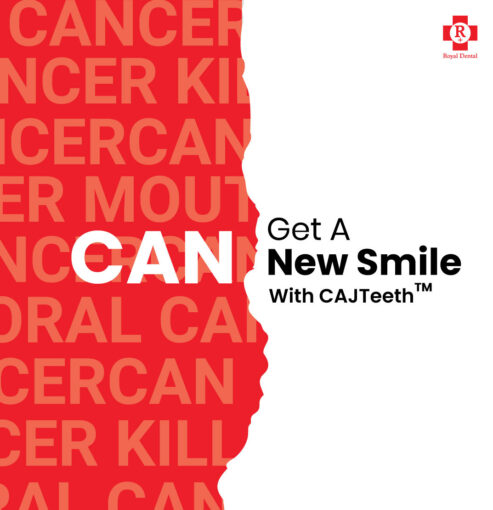
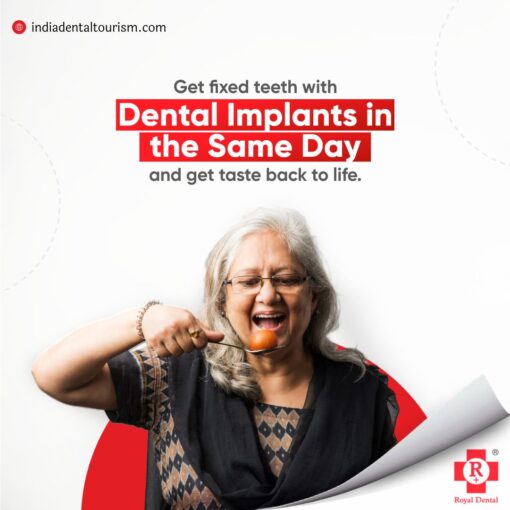
Dr Chirag Chamria, practising Oral and Maxillofacial surgeon at Royal Dental Clinics says that “It’s important to be aware of the risk factors and signs and symptoms so you can get help if needed. Whether it’s through regular visits to your dentist or doctor, brushing and flossing regularly, or avoiding the risk factors altogether, you should do what you can to keep your mouth healthy.”
Making decisions for treatment
Deciding about treatment can be difficult when you have advanced cancer. Treatments such as radiotherapy can help to reduce symptoms and might make you feel better. But they also have side effects that can make you feel unwell for a while.
Best to understand the quality of life after cancer treatment. What measures and precautions are to be taken and how can you get back your smile? You might have to make further choices as your situation changes. It helps to find out as much as possible each time.
Role of Cancer-Affected Jaw Teeth in restoring Smile
CAJTeethTM technology uses experience, expertise and skill to provide the best quality of life possible for people diagnosed with the cancer-affected jaw. Traditionally, any dental rehabilitation after cancer treatment would be deferred by at least 2 years. But now with the advancement in 3D technology, teeth are restored at the same time as that cancer surgery.
CAJTeethTM allows for the restoration of teeth lost due to oral cancer. The rehabilitation of teeth allows for a more normal eating, jaw and oral function. Traditionally, any dental rehabilitation is deferred by at least 2 years. But now with the advancement in 3D technology. Teeth can be restored at the same time as that of the cancer surgery.
Conclusion
Oral cancer is a life-threatening disease that affects the oropharyngeal region of the head and neck. This type of cancer is different from other cancers in that it is the only one that can be prevented through early detection. Mouth cancer is a serious disease that can be fatal if left untreated. There are many risk factors for developing the disease, and it is important that you know and understand them. You can reduce your risk of developing oral cancer by avoiding smoking and heavy drinking and getting regular dental check-ups.

